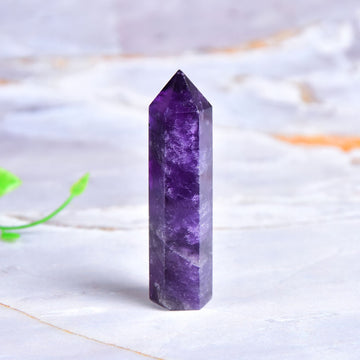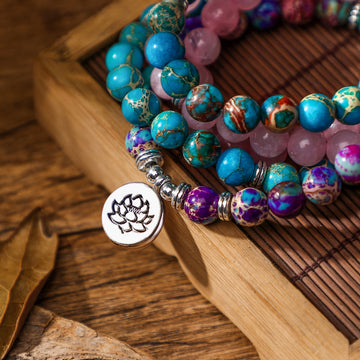This article first appeared in mindbodygreen.com and is written by Mike Iamele
We can do all the meditation and yogic breathing we want, but — let’s face it — every now and then, stress and anxiety are going to take hold.
Now, usually, I’m a fan of going the more holistic route: using stress as your teacher, learning to let go, or improving exercise, nutrition, and sleep to prime your engine. But there are times when even the most enlightened of us need a quick-fix — a little helper.
That’s when I sneak over to my medicine cabinet and pull out my secret stash: my herbs.
One note: I always use dried herb or tincture over a supplement. I purchase my herbs from a local farm, but some quality companies that will ship nationally include Jean’s Greens, Mountain Rose Herbs, and Herbalist & Alchemist.
Here are three herbs for stress and anxiety that might just surprise you.
1. Blue vervain (verbena hastata)
You may not know this potent treat, but the ancients sure did. It was a favorite herb for many civilizations, including Roman, Celtic, and Native Americans. Blue Vervain has many actions, including cleansing your liver, reducing sugar cravings, sweating out a fever, relaxing your muscles, balancing female hormones, and calming your nervous system. But it’s best used for the overachiever, perfectionist type who specifically carries tension in the neck and shoulders. This ally will vastly reduce stress and neck pain, along with getting you out of your head and back on track to changing the world.
2. Wood betony (stachys officinalis)
Another ancient herb that’s fallen out of favor, wood betony is the premiere headache herb. When you’ve got too much energy circulating the noggin, betony will pull you right back down into your body. It’s good for nervousness, anxiety, hysteria, or the occasional stuck-in-your-head syndrome. It will pull you away from your thoughts and back into your body, where you can take action, instead of mulling it over all day long.
3. Slippery elm (ulmus fulva)
The inner bark of the elm tree has been a medicinal favorite of the Native Americans for centuries. Packed with nutrients, such as calcium, iron, magnesium, manganese, phosphorus, potassium, selenium, zinc, and vitamins B1, B2, B3, and C, slippery elm can give a real boost to nervous system function. But its real value comes from the presence of mucilage in the bark, which soothes and coats all mucus membranes, including the digestive tract. If you’re one of the many people who hold stress in their stomachs, then slippery elm can teach you how to quite literally let go and get back on your game.
Call me old-fashioned, but these oft-overlooked herbs help me and my clients relax, get out of our heads, and learn to let go.
So, the next time you’re unable to get yourself back to baseline with your normal rituals, don’t be shy about phoning a friend. Brew up a pot of blue vervain, wood betony, or slippery elm (or maybe all three).
Mike Iamele is author of the provocative new book Enough Already: Create Success on Your Own Terms (Conari Press 2015), which takes a critical look at the dysfunctional pressures of modern success



































